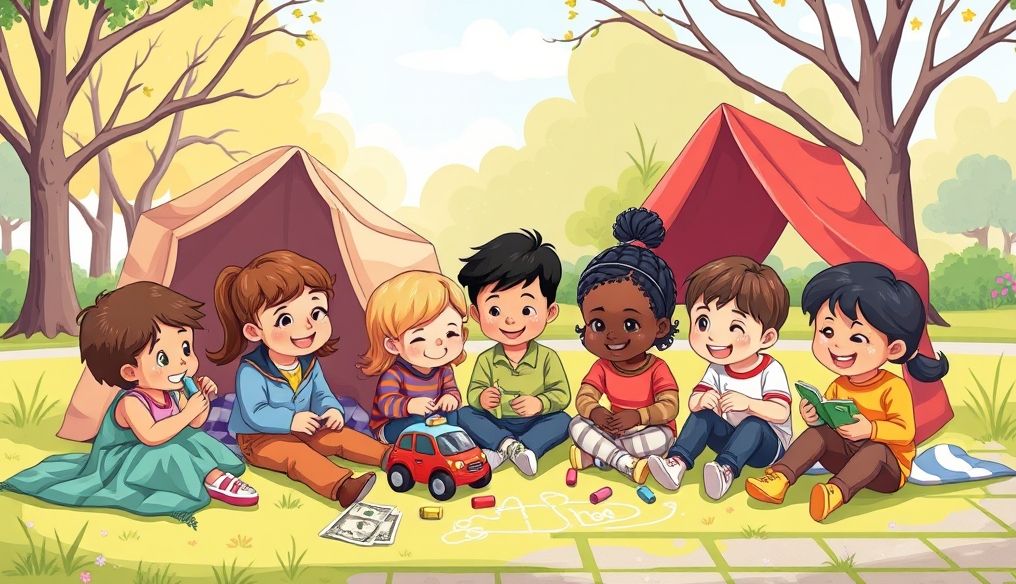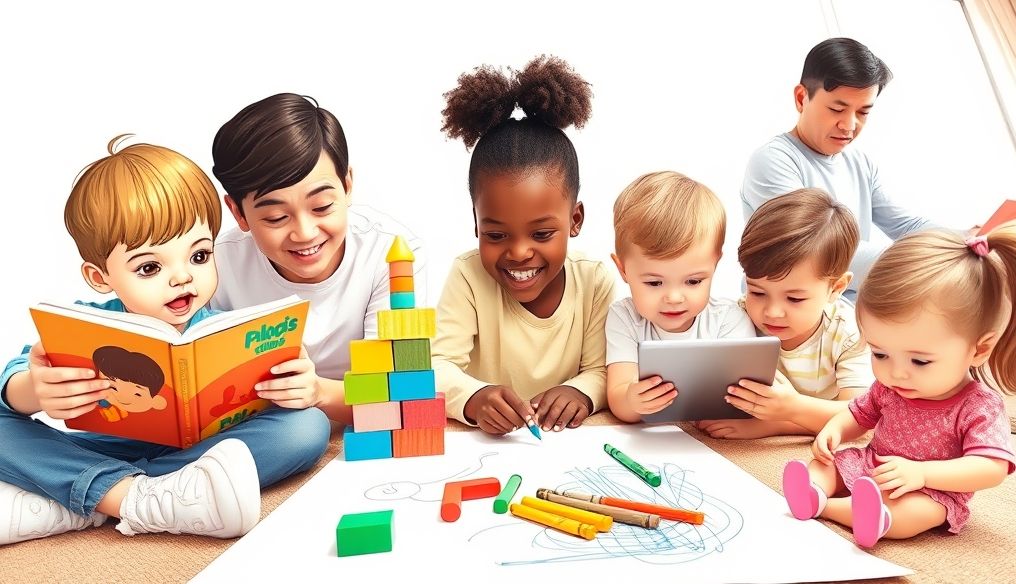Why is Play Essential for a Child's Personality Development?
Play is the primary activity that occupies most of a child's time, but it's not just entertainment. It's a complex and multifaceted process that plays a crucial role in their physical, mental, social, and emotional development. Let's explore in depth why play is essential for a child's personality development.
1. Social and Emotional Development
Play provides children with opportunities to interact with others, helping them develop important social skills. They learn how to cooperate, compete, negotiate, and resolve conflicts. Through play, children also learn how to understand their own emotions and the emotions of others, which enhances their emotional intelligence.
- Cooperation: In group games, children learn to work together to achieve a common goal.
- Competition: Healthy competition helps develop initiative and motivation.
- Negotiation: Children learn how to negotiate to reach solutions that are satisfactory to everyone.
- Conflict Resolution: Children learn how to deal with disagreements constructively.
- Emotional Intelligence: Children learn how to recognize, understand, and express their own emotions and the emotions of others appropriately.
2. Cognitive Development
Play stimulates creative thinking and problem-solving. Through play, children learn how to explore the world around them and experiment with new things. It also helps them develop their language, mathematical, and scientific skills.
- Creative Thinking: Play encourages children to think outside the box and come up with new solutions.
- Problem-Solving: Children learn how to identify problems, analyze them, and find solutions.
- Language Skills: Through play, children learn new words and practice using language to express their thoughts and feelings.
- Mathematical Skills: Play can help children develop their mathematical skills through counting, measuring, and comparing.
- Scientific Skills: Play encourages children to ask questions and explore the world around them, fostering their scientific curiosity.
3. Physical Development
Active play helps children develop their gross and fine motor skills. It also helps them build strong bones and muscles and improve their physical fitness. Studies show that children who play regularly are less likely to become obese and develop chronic diseases.
- Gross Motor Skills: These skills include running, jumping, climbing, throwing, and kicking.
- Fine Motor Skills: These skills include writing, drawing, cutting, and pasting.
- Physical Fitness: Active play helps burn calories, build muscle, and improve cardiovascular health.
4. Boosting Self-Confidence and Independence
When children succeed in games, they feel pride and accomplishment, which boosts their self-confidence. Play also allows them to make decisions for themselves, which enhances their independence.
- Pride and Accomplishment: When children succeed in achieving a goal in play, they feel proud of their abilities.
- Decision-Making: Play allows children to make decisions for themselves, enhancing their sense of control over their lives.
5. Self-Expression
Play provides children with a way to express their thoughts and feelings in a safe and comfortable way. Through play, children can explore their identity and experiment with different roles.
- Exploring Identity: Play allows children to experiment with different roles and discover what they like and dislike.
- Expressing Emotions: Children can use play to express emotions that they may find difficult to express in words.
6. Types of Play and Their Importance
There are different types of play, and each type has its own benefits:
- Free Play: Allows children to explore the world around them without restrictions.
- Structured Play: Involves specific rules and structures.
- Creative Play: Encourages children to use their imagination and create new things.
- Social Play: Involves interacting with others.
- Sensory Play: Involves using the senses to explore the world.
7. The Role of Parents in Promoting Play
Parents can play a crucial role in promoting healthy play for their children. They can provide opportunities for play, encourage them to explore their interests, and play with them.
- Providing Opportunities for Play: Parents can provide a variety of toys and activities for their children.
- Encouraging Exploration: Parents should encourage their children to explore their interests and try new things.
- Playing with Children: Parents can strengthen their relationship with their children by playing with them.
8. The Impact of Technology on Play
With the increasing use of technology, it is important to ensure that children still get enough opportunities for non-digital play. While digital games can be fun and educational, they cannot replace the benefits of traditional play.
- Balancing Digital and Non-Digital Play: Parents should ensure that their children get equal opportunities for digital and non-digital play.
- Choosing Appropriate Digital Games: Parents should choose digital games that are age-appropriate and promote learning and creativity.
In conclusion, play is not just a recreational activity, but a necessity for a child's personality development. Through play, children acquire essential social, emotional, cognitive, and physical skills that help them grow into independent, confident, and creative individuals.




